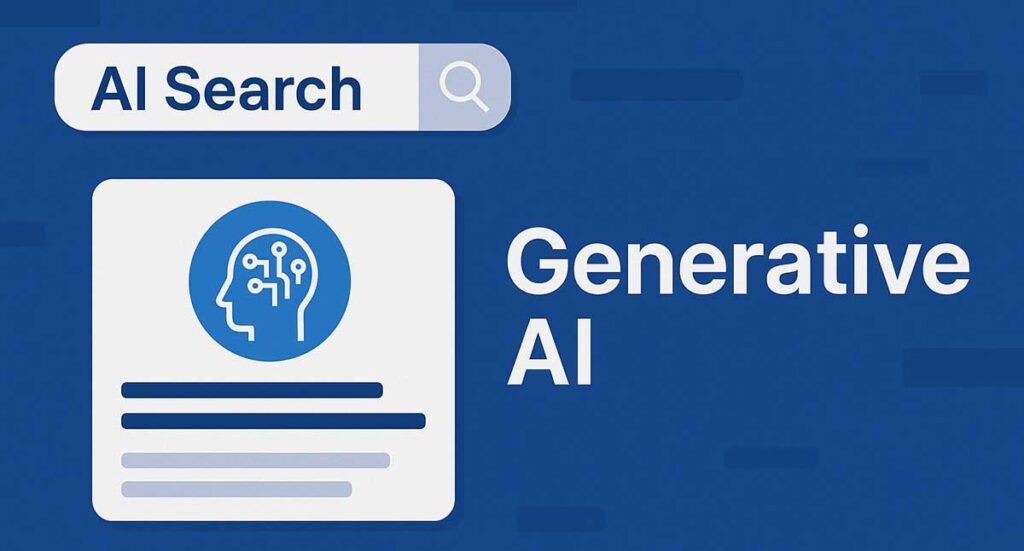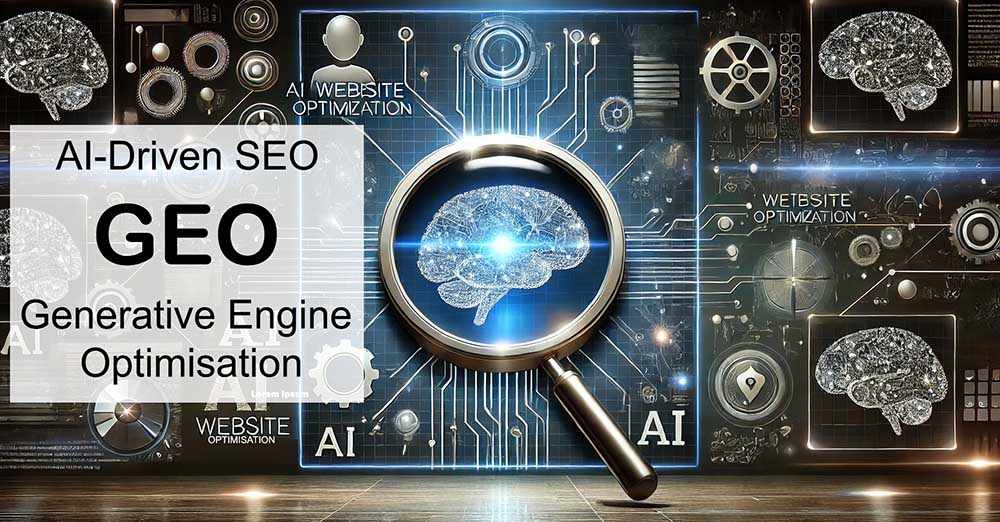What Is GEO?
Generative Engine Optimisation (GEO) is the practice of preparing your website content so that it not only appears in search rankings but also gets cited within AI-generated answers from tools like Google Gemini, Microsoft Copilot, ChatGPT, and Perplexity.
Think of it this way:
- SEO gets you on the list of possible answers.
- GEO gets you into the answer itself.
As someone who has spent years watching the SEO landscape shift, this is one of the most significant changes yet. AI is no longer an add-on to search; for many people, it is the first stop. That means how AI interprets and presents your brand could easily decide whether you win or lose a customer.
Where GEO Stands Today
The term “GEO” first started gaining traction back in 2023 when researchers began analysing how AI tools decide which sources to cite.
Fast forward to now:
- Website platforms like Wix are already showing how often sites are cited in AI answers.
- Agencies are starting to audit for AI readiness, not just Google rankings.
- Businesses worldwide are waking up to the fact that SEO alone isn’t enough anymore.
In my work, I’ve seen clients get frustrated because their site ranks well in Google, but AI tools don’t mention them at all. That’s the gap GEO aims to fill.
Why GEO Matters
Let’s be blunt: the way people search has changed.
- Clicks are dropping – AI gives answers directly, so fewer people click through to websites.
- Authority is shifting – If AI tools cite you, your brand instantly feels more trustworthy.
- User expectations have changed – People want conversational, instant answers, not a list of 10 blue links.
If your content isn’t structured, specific, and credible enough to be picked up by AI, you risk becoming invisible to a growing share of your audience. And in today’s market, invisibility is as good as being irrelevant.
Action Steps for Website Owners
If you’re running a business site, here’s how to prepare for GEO (and these are tactics I use myself with clients):
- Use clear structure – Break content into short sections with headings and bullet points.
- Add FAQs – Anticipate the exact questions your customers ask and provide direct answers.
- Prove credibility – Include author bios, case studies, and referenced data.
- Keep it fresh – Update your key pages regularly; AI prefers current content.
- Balance SEO with GEO – Don’t abandon your SEO basics, just layer GEO on top.
Guidance for SEO Agencies
For agencies, GEO isn’t a nice-to-have; it’s the next service your clients will expect.
- Audit for AI readiness – Check clarity, structure, and schema markup.
- Test AI visibility – Run client keywords in ChatGPT, Gemini, and Perplexity.
- Educate clients – Explain that AI citations are the new KPI, not just Google rankings.
- Integrate GEO into services – Add it alongside your existing content optimisation and link-building work.
I’ve already started building GEO checks into my audits, and the difference it makes for clients is huge, especially in competitive niches.
Ready to Harness the Power of Generative AI?
Generative AI is reshaping search, SEO and online marketing — but only if you use it strategically. At Digital Hype, we help businesses across Bournemouth, Poole, Dorset and UK-wide adapt to AI-driven search (GEO), streamline workflows, and stay ahead of the competition. Let’s explore how AI can boost your visibility and transform your digital strategy.
Contact Us About AI StrategyQuick GEO Checklist
| Task | Website Owners | SEO Agencies |
| Structure content | Clear headings & lists | Audit readability & schema |
| Add FAQs | Direct customer Q&As | FAQ-driven optimisation |
| Show authority | Bios & case studies | Apply E-E-A-T frameworks |
| Keep fresh | Update regularly | Plan content refresh cycles |
| Test AI visibility | Try prompts in AI tools | Track & monitor mentions |
FAQs on GEO
1. What is Generative Engine Optimisation (GEO)?
It’s the process of optimising content so AI tools can reference it directly in their answers.
2. Is GEO replacing SEO?
No. GEO complements SEO. You still need strong SEO foundations, but GEO ensures that AI can also utilise your content.
3. Why does GEO matter for small businesses?
Because local customers are already using AI assistants instead of Google, GEO makes sure you still get found.
4. How can I test if my site is GEO-ready?
Ask AI tools about your products or services. If you’re not cited, your content may need to be restructured.
5. What’s the most straightforward GEO tactic I can start with?
Add an FAQ section answering real customer questions. AI tools love direct, conversational content.
6. How often should GEO content be updated?
Every 3–6 months for key pages. AI models prefer current, relevant data.
7. What industries benefit most?
Any industry where customers search online, retail, finance, healthcare, and local services.
8. Where can I learn more?
Trusted sources include Search Engine Land, The Wall Street Journal, and Digital Hype’s GEO services.
Shaping the Future of Search
Here’s the truth: Generative Engine Optimisation isn’t a passing trend. It’s the natural evolution of SEO in an AI-first world.
Businesses across Bournemouth, Poole, Dorset, and the wider UK that act now will be the ones shaping the answers people see every day. Those that don’t will find AI defining their brand for them — often in ways they don’t like.
It’s not just about being found anymore. It’s about being the answer people see first.


